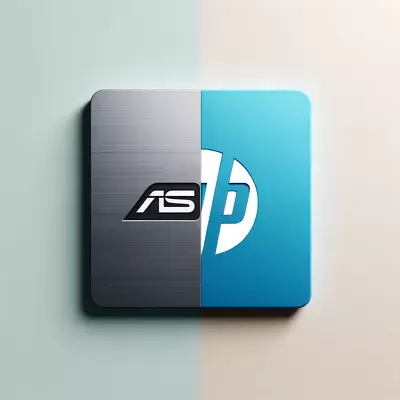Best Laptops for Cyber Security Students: Performance Meets Security
Cybersecurity students face unique challenges that demand robust and powerful computing solutions. Their academic journey requires handling complex software, running simulations, and analyzing vast amounts of data. Identifying the right laptop is crucial, not just for day-to-day college tasks but also for the specialized programs and security practices inherent to their field. This article explores the top laptops designed to meet these specific needs, ensuring students are well-equipped for their studies and beyond.
As an Amazon Associate, we earn a commission from qualifying purchases.
I. Introduction
In the rapidly evolving field of cybersecurity, students are tasked with staying ahead of cutting-edge technologies and sophisticated cyber threats. The cornerstone of this relentless pursuit is a reliable, high-performance laptop designed to handle intensive security software, data analysis, and network management tasks. This article delves into the critical aspects that define the best laptops for cybersecurity students and reviews top models that stand out in the market.
II. Key Features to Consider for Cybersecurity Laptops
A. Processing Power
The computational demands of cybersecurity tasks require laptops with high processing power. A multi-core processor, preferably an Intel Core i7 or i9 or their AMD equivalents, ensures the smooth running of simultaneous virtual machines, cryptographic algorithms, and data analysis software.
B. Security Features
Enhanced security features are paramount. This includes biometric authentication, TPM chips for encrypted data storage, and robust software compatibility for running advanced security protocols and firewalls.
C. Durability and Reliability
Cybersecurity students need laptops that are not only powerful but also durable and reliable. Models built to military specifications for resistance to dust, shock, and temperature extremes ensure longevity and constant readiness for any task.
D. Portability
While performance is key, portability must be noticed. Lightweight designs and long battery life are essential for students who are always on the move, from classrooms to cybersecurity labs.
III. Review of Top Laptops for Cyber Security Students
A. Dell Precision 7770 Mobile Workstation
- Performance: With a 4.8 GHz Intel Core i7-12850HX 16-Core processor and 64GB of RAM, the Dell Precision 7770 is a powerhouse designed for complex simulations and data analysis.
- Security Enhancements: It features a TPM 2.0 chip for secure booting and data encryption, ensuring a high level of security for sensitive information.
- Portability and Design: Despite its robust performance capabilities, it maintains a relatively portable form factor with a 17.3″ FHD display, balancing power with mobility.
B. HP ZBook Studio G9 Mobile Workstation
- Performance: The Intel Core i7-12700H processor and 16GB of RAM deliver exceptional speed and efficiency for running multiple security applications simultaneously.
- Security Software Integration: HP’s Wolf Pro Security Edition provides advanced malware protection and data privacy features, making it a solid choice for cybersecurity students.
- Design and Display Quality: The 16″ WQUXGA display offers crisp, detailed visuals essential for analyzing data and code.
C. Lenovo ThinkPad X1 Extreme Gen 5
- Performance: Featuring an Intel Core i7-12800H processor and 64GB DDR5 RAM, Lenovo ThinkPad is built to handle intensive multitasking and demanding security applications.
- Advanced Security Features: A fingerprint reader and dTPM 2.0 encryption module enhance data security, while the backlit keyboard ensures productivity in low-light conditions.
- Build Quality and Portability: Its 16″ WQXGA anti-glare display is housed in a durable, lightweight chassis, making it ideal for both fieldwork and classroom learning.
IV. Comparing the Options
A. Performance Benchmarks
Across benchmarks, the Dell Precision 7770 and Lenovo ThinkPad X1 Extreme Gen 5 lead with their superior processing power and memory, which is essential for handling resource-intensive cybersecurity tasks.
B. Security Features Comparison
While all models offer advanced security features, the HP ZBook Studio G9 stands out with its integrated Wolf Pro Security software, offering an extra layer of protection against cyber threats.
C. Price-to-Value Ratio
Considering performance, security features, and durability, the Lenovo ThinkPad X1 Extreme Gen 5 offers the best price-to-value ratio, balancing high-end specifications with cost efficiency.
V. FAQs
Q: What makes a laptop suitable for cybersecurity tasks?
A: A suitable laptop must have a powerful processor, ample RAM, advanced security features, and durability to handle intensive security applications and data analysis.
Q: Can these laptops be used for gaming?
A: Yes, their high-performance specs make them capable of handling most modern games, although they are primarily designed for professional use.
Q: How important is battery life for a cybersecurity laptop?
A: Battery life is crucial for students who need to work on the go or in environments where power sources may not be readily available.
Q: Are these laptops upgradeable?
A: Most high-end laptops offer some level of hardware upgradeability, such as increased RAM or storage, but it varies by model.
Q: What is the advantage of having a TPM chip?
A: A TPM chip provides hardware-based security functions, including secure boot, disk encryption, and key storage, enhancing overall data protection.
Q: Can I run virtual machines on these laptops?
A: Yes, their powerful processors and ample RAM make them ideal for running multiple virtual machines simultaneously.
Q: Are there specific operating systems recommended for cybersecurity studies?
A: While Windows is commonly used, many professionals also recommend Linux for its flexibility and security features. It’s advisable to choose a laptop compatible with both.
VI. Conclusion
A. Best Offer
The Lenovo ThinkPad X1 Extreme Gen 5 is the top recommendation for cybersecurity students. It offers an exceptional balance of performance, security, and portability at a competitive price.
B. The Alternative
For those prioritizing integrated security software and display quality, the HP ZBook Studio G9 presents a compelling alternative, especially with its specialized security features.
VII. Suggested Readings
The field of cybersecurity is vast and ever-changing, necessitating continual learning and adaptation. Here are some suggested readings to deepen your understanding and keep abreast of the latest trends and technologies:
- “Cybersecurity Essentials” by Charles J. Brooks – An accessible introduction to the fundamentals of cybersecurity, covering key concepts and practices.
- “The Art of Invisibility” by Kevin Mitnick – Provides insights into online privacy and security from one of the world’s most famous hackers-turned-security experts.
- “Ghost in the Wires” by Kevin Mitnick – A thrilling autobiography that offers a deep dive into the mind of a hacker and the complexities of cybersecurity.
- “Sandworm: A New Era of Cyberwar and the Hunt for the Kremlin’s Most Dangerous Hackers” by Andy Greenberg – An investigative journey into the world of cyber warfare, highlighting the real-world impacts of cybersecurity threats.
- “Practical Malware Analysis” by Michael Sikorski and Andrew Honig – A hands-on guide to understanding malware and how to combat it, ideal for those seeking to specialize in cybersecurity.
Exploring these readings will provide cybersecurity students and enthusiasts with a broader perspective on the digital threats we face and the strategies employed to combat them. Each book offers unique insights, from practical skills and technical analysis to understanding the socio-political implications of cyber threats.






